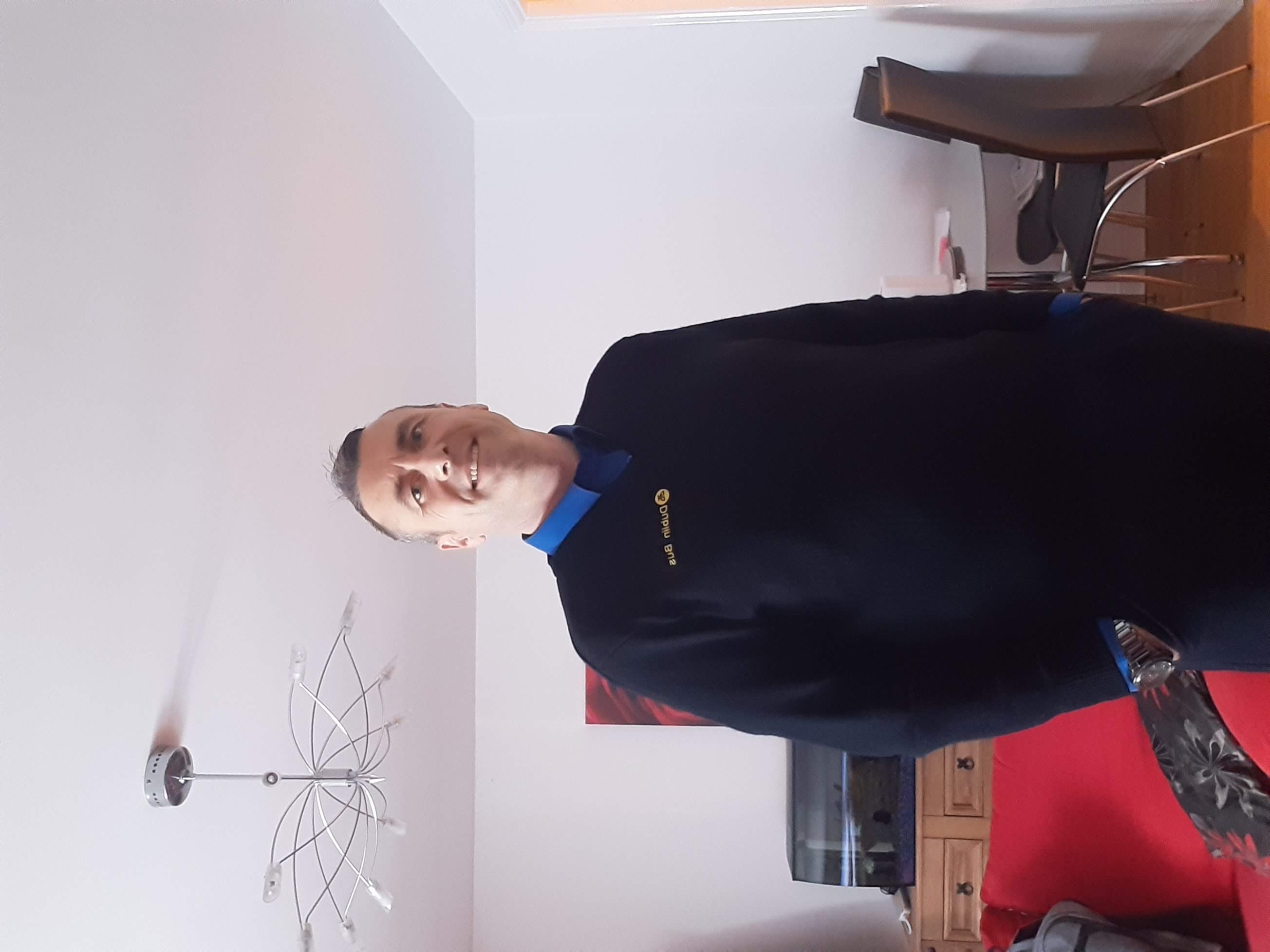“I am an example of somebody who had their lung cancer detected early and lived to tell the tale.”
On his way to work one day, Damien O’Hara, a 49 year old Dublin Bus driver from Swords, Co. Dublin, coughed up a little bit of blood.

“I thought nothing of it because I had previously suffered with stomach ulcers and thought that’s all it was. It happened again a few weeks later so I went to my GP and they didn’t like the sound of that. They told me coughing up blood isn’t anything to do with the stomach, it’s your lungs. I was referred for a chest x-ray and they noticed shadowing, so I was sent on for a CT.”
“Pretty quicky they were able to tell me it was lung cancer and I suppose, when you hear those two words – lung cancer – you just think ‘I’m dead’. But the medical team were very encouraging and they told me they had caught it early. They were as hopeful as they could be, but I honestly thought they were just saying all that to make me feel better.”
Damien had been a smoker but had just given up the previous December. “My New Year’s resolution was to give up smoking"
Every smoker, whether you used to smoke or still do, is aware of lung cancer and the increased risk of getting it. For my treatment, I needed chemoimmunotherapy – this was done in three cycles lasting three weeks each. Everyone reacts differently to treatment. The medical team were brilliant and gave me advice and medication, anti-sickness tablets, steroids and so on, to get through it. I thankfully had an okay experience with the treatment – you would be up and full of energy for the treatment itself from the steroids and then afterwards, I’d crash. I could sleep for days and then you’re only getting yourself back to a bit of normality and you repeat the cycle again.”
Following this treatment, Damien underwent surgery to remove the affected area of his lung. “After they took it out, they sent it off for biopsy and thankfully, the cancer cells were dead and it hadn’t spread further. After the surgery, for about 7-8 weeks, I was in serious pain. I was given medication to cope with the pain but everything from laughing to coughing was agony. I needed a lot of bed rest and if I could go back in time and give advice to myself, I’d say no funny films because laughing was awful!”

A Dublin Bus driver, Damien has been told by CIE that as per National Driver Licence Service (NDLS) guidelines he is not allowed return to work until at least one year after his chemotherapy finished. “From January 2025, I’m signed off medically to go back to work but I’ve been told by CIE that I’m not allowed return until at least one full year after my chemotherapy ending. This has made coping financially very difficult. Over the first six months of my treatment, my sick pay was topped up in full, then 60% and then 40% but after six months, you’re just on the statutory sick pay. Since then, I have been on the €230 per week illness benefit. I still have my rent, my bills, one kid in college and another doing his Leaving Cert."
"It has been really difficult financially and I can’t understand why I’m not allowed go back to work.”

Damien is sharing his story to raise awareness of lung cancer and to encourage people to attend their GP with any signs or symptoms of lung cancer. “I got lucky. My tumour happened to be at the top of my lung near my airwave and I coughed up a little bit of blood. The tumour could have been somewhere else in my lung growing and spreading and I wouldn’t have had that symptom. Anyone who is a current or former smoker knows the risks associated with lung cancer. Of course, even if you were never a smoker, you can still get lung cancer. But as a smoker, whether you like it or not, that increased risk is there in the back of your mind.
It is brilliant that this new Lung Cancer Screening pilot is being launched by Beaumont-RCSI with funding from the Irish Cancer Society. It is the biggest investment in lung cancer research Ireland has ever seen and I am an example of somebody who had their lung cancer detected early and lived to tell the tale. I think anyone who is at risk should be open to participating and hopefully over time it is widely available for people to access.”

Want to get involved in Daffodil Day this year? Join us on March 28, and go all in against cancer! Click the button below to find out all the ways you can take part in Daffodil Day this year!



